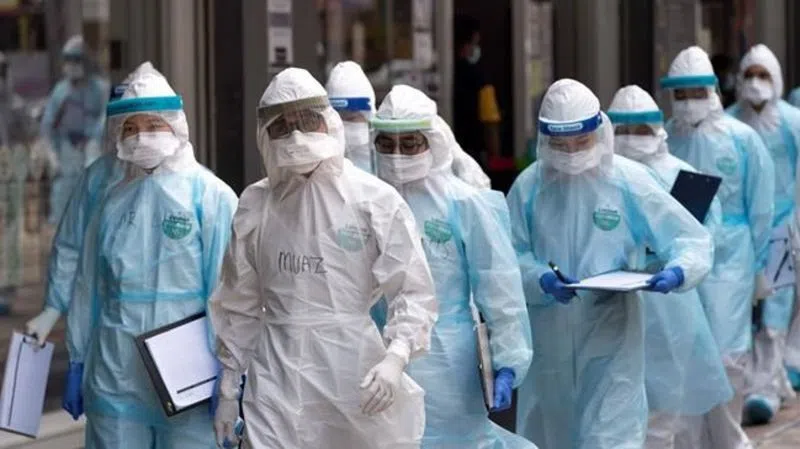
Virus puts UK PM in intensive care; Japan declares emergency
LONDON — British Prime Minister Boris Johnson was in intensive care Tuesday with the coronavirus, while Japan’s leader declared a monthlong state of emergency for Tokyo and six other regions to keep the virus from ravaging the world’s oldest population.
The 55-year-old Johnson, the world’s first head of government known to have fallen ill with the virus, was in stable condition and conscious at a London hospital, where he was receiving oxygen but was not on a ventilator, said his spokesman James Slack. Foreign Secretary Dominic Raab was designated to run the country in the meantime.
“We’re desperately hoping that Boris can make the speediest possible recovery,” said Cabinet minister Michael Gove, who is among scores of British officials in self-isolation. Johnson’s pregnant fiancee is recovering from coronavirus symptoms.
Japan’s prime minister made the emergency declaration after a spike in infections in Tokyo, but it was a stay-at-home request — not an order — and violators will not be penalized. Despite having relatively few infections and deaths, Japan is a worrying target for a virus that has been killing the elderly at much higher rates than other age groups.


